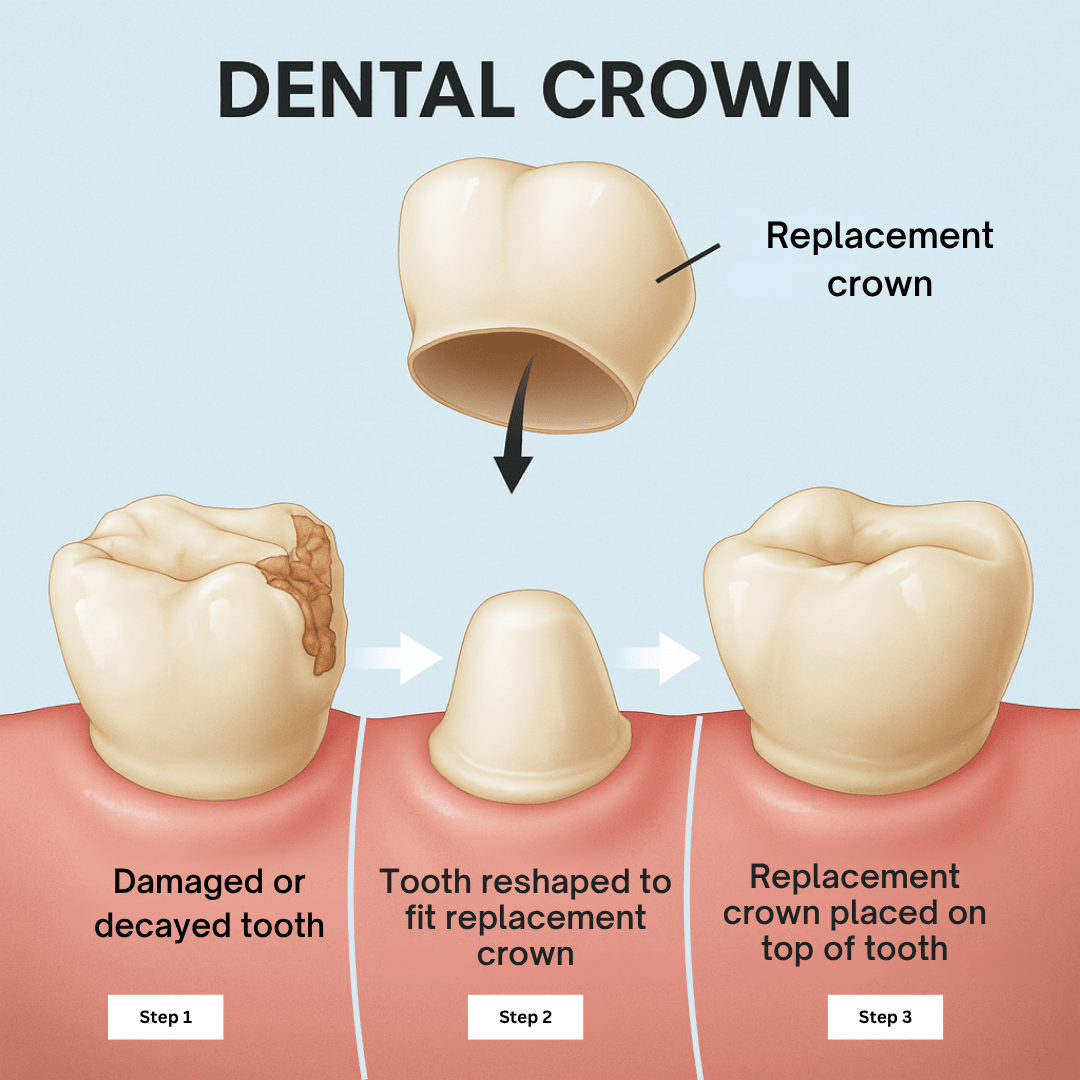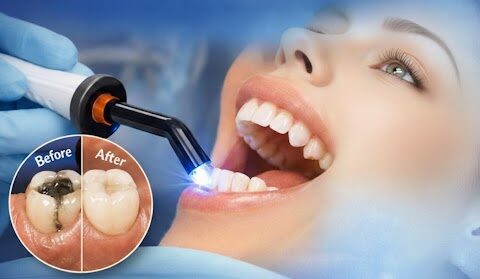Why Your Dentist Recommended a Crown And What Happens If You Delay It
A dental crown is often described as a cap placed over a tooth to safeguard it from infection, damage, or decay. Put simply, it is to mitigate complications that may arise with the wearing down of the tooth. In the vast majority of cases, dental crowns should be placed as the risks far outweigh the costs.
Delaying treatment poses multiple risks and complications, including infection and damage, which can lead to expensive repairs.
What Is a Dental Crown and Why Do You Need One?
Dental crowns are custom-made caps designed to fit the specific contours of a tooth, providing full coverage for teeth that may be chipped or worn down. Imagine it like a helmet: it serves to not only protect but also restore the tooth’s size, shape, strength, and appearance.
Like any medical treatment, dental crowns are not placed without proper assessment.
Crowns serve to protect and restore teeth that have lost their structure and are at risk of breaking or decaying further
Common Reasons Dentists Recommend a Crown
Dental crowns are often used in the following cases:
- Cracked or fractured teeth, especially from hard bites or grinding (bruxism).
- Large cavities occur when a tooth is too decayed to be treated with a filling.
- After a root canal treatment as the tooth becomes brittle and prone to break.
- Severely worn-down teeth due to aging, acid erosion, or teeth grinding.
- To restore a broken or chipped tooth for both function and appearance.
These scenarios need to be treated as soon as possible, as ignoring them can cause more complicated dental concerns down the road.
The Risks of Delaying Dental Crown Treatment
If a dental concern is not attended to right away, it can worsen the problem and also make treatment more difficult later on. Delaying dental crown treatment can result in the following:
- Tooth breakage: A tooth that has undergone structural damage is at risk of breaking due to added stress, at times becoming too damaged to save, with extraction being the only option.
- Infection: A tooth left untreated can develop an infection in the pulp, which may necessitate root canal therapy or tooth extraction.
- Costlier treatments: A crown is considered a proactive treatment. If too much time is taken, implants or bridges may be required, which are much more invasive and expensive.
- Pain or sensitivity: The damage that is not treated is likely to result in greater discomfort or increased sensitivity while chewing, drinking, or brushing.
These consequences from postponing treatment to place a crown are preventable, especially when action is taken sooner.
Tooth Cap vs Crown: Is There a Difference?
One of the questions asked by adults is: Tooth cap vs crown – aren’t they synonyms?
Absolutely! The word “cap” is just an informal or older reference to a crown. They both refer to the same restoration: a covering that encases a tooth.
Types of Dental Crowns and Cost
Your dental needs, preferences, and budget may determine which type of dental crowns you can get:
- Porcelain or ceramic crowns: These are optimal for anterior teeth because of their esthetics.
- Porcelain-fused-to-metal (PFM): These are used for posterior teeth because they are stronger than pure porcelain.
- Metal crowns (gold or alloy): These are very strong and well suited for molars.
- Zirconia crowns: Strong, visually appealing, and commonly used for both anterior and posterior teeth.
From our end, dental crowns have a wide range of prices based on the material used, geographic location, and insurance plans. On average, within the U.S., the price sits between $800 to $2,500 per crown. Dental insurance usually pays part of the expense when the treatment is deemed necessary from a medical standpoint.
Dental Crown Treatment for Adults: What to Expect
For adults, crown treatment is a standard procedure and an uncomplicated process usually conducted over two appointments:
- First Visit – Your dentist will do the following:
- Administer local anesthesia.
- Treat existing decay or damage.
- Fit the tooth to the crown.
- 3D scan/extract images and place a provisional crown
- Second Visit – 1-2 weeks later, your dental crown will be fitted, and in this session, it will be:
- Verify accuracy in fit, color match, and overall comfort.
- Permanently affixed via cement.
Injections are optional, and if taken will not be felt. Following the set crown installation, your tooth will be strengthened and optimally functional.
Understanding Why Timely Actions Matter
It is easy to delay dental work needed to be done on the other hand, waiting can trigger a range of problems that may need invasive treatments down the line.
Following through with your dentist’s recommendations to place a crown forego several strategies focused on long-term oral health. A crown you get in time can relieve and avoid hurting, prevent losing teeth, and save on overall dental costs.
Take the Next Step Toward a Healthier Smile
To maintain your smile, please do not wait to schedule your dental crown treatment until pain becomes unbearable. You can take proactive measures and safeguarding your smile by undergoing dental crown treatment today.
If you have any inquiries regarding the different dental crowns, their costs, or if you qualify for the procedure, we are always willing to assist out dental team. Consultation is easy to book with the dental team and we’ll work out the treatment plan that caters to your needs.



